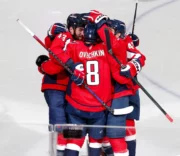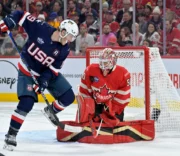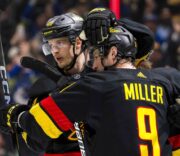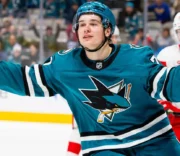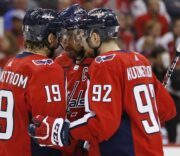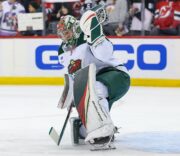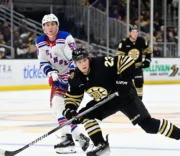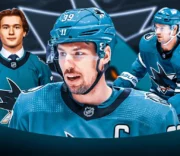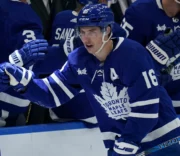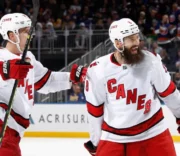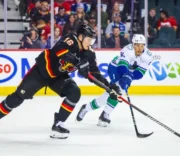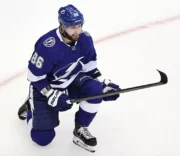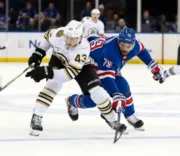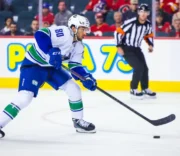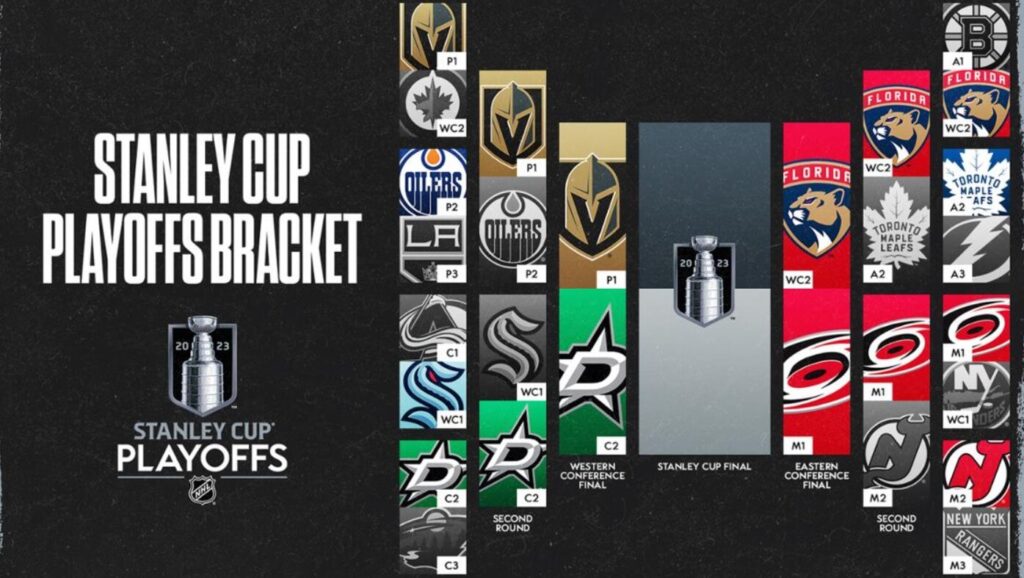
The NHL’s 2023 playoffs have drawn to a close, and while fans eagerly anticipate the next season, they also indulge in reminiscing about the previous one. Raphael Caron’s comments on the enduring worth of the NHL’s playoff structure is worth examining.
Taking a Step Back
For many, the off-season may seem like the quietest phase in the hockey cycle. Yet, it’s an opportune moment for enthusiasts to:
- Reflect on past glories and failures
- Look forward to future prospects
- Dive deep into the roller-coaster ride that is the Stanley Cup playoffs
Indeed, the Stanley Cup playoffs stand as the epitome of hockey entertainment. Although, it’s understandable if some might view this past season with a tint of despair, especially if their preferred team missed out or got eliminated earlier than expected.
A Glimpse at the Evolution
Historically, the NHL underwent a significant change in its playoff format a decade back.
| Before 2013-14 | After 2013-14 |
| Two-conference system | Four-division system |
| Three divisions each | Two-conference setup |
| Top team in each division secured a playoff spot | Top three teams in each division proceed to playoffs |
| Remaining five spots were contested | Remaining best two fight for the last two conference spots |
Earlier this year, a significant affirmation regarding this change was voiced by none other than the NHL commissioner, Gary Bettman.
He confidently stated, “this playoff format is here to stay.”
Critics have their reservations, but the results from the past season provide a compelling counter-narrative.
The Thrill of the Journey
While the climax of the Stanley Cup might have felt abrupt to many, it was the path both finalists took that illuminated the essence of playoff hockey. For the NHL, a primary objective in recent times has been:
- Enhancing the sport’s marketability
- Integrating new expansion teams
- Amplifying its reach and appeal
The NFL, another titan in North America’s sports landscape, is adept at marketing star players and spinning engaging tales, be it player rivalries or classic team confrontations. The NHL realizes the necessity of adopting a similar strategy to keep pace.
“The NHL knows it needs to follow in those footsteps to not fall behind in the game.”
Splitting conferences into two divisions was a strategic move in this direction. This reshuffling not only facilitated repeated confrontations among the same teams, fostering new rivalries, but also rejuvenated older ones.
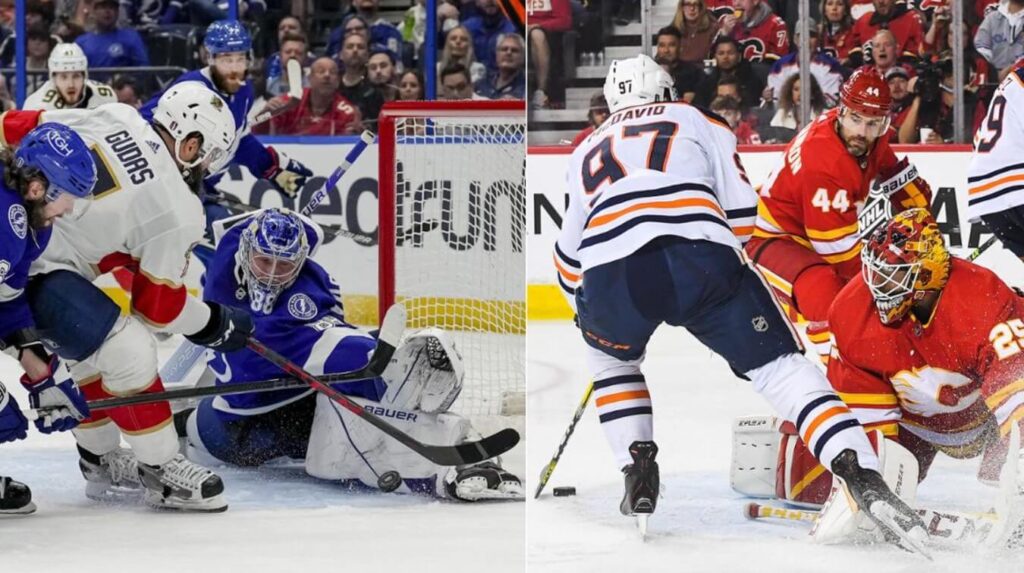
A Case in Point
The playoff duels between the Oilers and the Kings in recent times have been a testament to this change, offering captivating viewing experiences for fans night after night. In essence, these matchups craft narratives that magnetize audiences.
This season presented an underdog tale that caught everyone’s attention. The Florida Panthers, starting as the lowest seed, managed to:
- Overcome a 3-1 deficit against the formidable Boston Bruins
- Defeat both the second and fourth-ranked teams subsequently
Such feats don’t just remain confined to a single season. Looking back, the Montreal Canadiens’ comeback from a 3-1 trail against the Toronto Maple Leafs in 2021 and their journey to the Cup final stands out. Similarly, the 2017 Nashville Predators’ heroics, where they conquered the Chicago Blackhawks, St. Louis Blues, and Anaheim Ducks, underscores the point.
“The current format has helped create new rivalries and rejuvenate old ones.”
Rivalries Rekindled
Despite not being a recent playoff feature, the palpable tension between the Maple Leafs and the Bruins remains a classic rivalry. Since their iconic 2013 game seven, the prospect of these teams clashing in the playoffs has been a tantalizing one. The current divisional playoff structure augments the likelihood of such electrifying encounters.
Detractors might opine that the existing system alters the quintessential hockey experience. However, it doesn’t dismantle the core; instead, it refines it, accentuating rivalries and weaving entrancing tales. The 2023 playoffs stand testament to this, endorsing the NHL’s commitment to its present format.
Adapting to Change: The Impact on Teams and Fans
As the NHL’s playoff structure evolves, so do the strategies teams employ and the experiences fans undergo. This adaptation isn’t merely superficial – it has profound effects on the game’s dynamics both on and off the ice.
Team Dynamics in the New Era
Under the new format, teams now strategize differently:
- Roster Building: Teams now look to craft rosters that can compete consistently in their divisions, considering they face the same opponents more frequently. This often means acquiring players who match up well against divisional rivals.
- Season-long Strategies: Instead of focusing solely on accumulating points, there’s a heightened emphasis on inter-divisional games. Teams might opt to rest key players in non-divisional games to ensure they’re fresh for more critical divisional matchups.
- Scouting and Analysis: There’s a deeper emphasis on understanding divisional opponents. Teams invest more in analytics and scouting to decipher patterns, strengths, and weaknesses of their most frequent opponents.
- Mental Preparedness: Players often talk about the psychological aspect of the game. Facing the same teams repeatedly can be mentally draining, especially if previous matchups were particularly physical or contentious.
Fan Experience in Modern Times
Fans, too, have seen their engagement with the sport evolve:
- Rivalry Games: While they’ve always been a highlight, the new format amplifies their frequency and significance. This means more high-stakes, emotionally-charged games for fans to look forward to.
- Narrative Engagement: The recurring matchups allow deeper narratives to develop over the season. This can lead to a richer and more immersive viewing experience, with fans feeling more connected to the unfolding stories.
- Community Engagement: The structure encourages more interactions between fans of divisional rivals. Whether it’s friendly banter or intense debates, these interactions often spill over to social media, fan forums, and even local sports bars, fostering a sense of community.
- Expectation Management: As teams shift their focus to divisional games, fans too recalibrate their expectations. A loss to a non-divisional opponent might be disappointing but is often viewed in the broader context of the team’s divisional performance.


